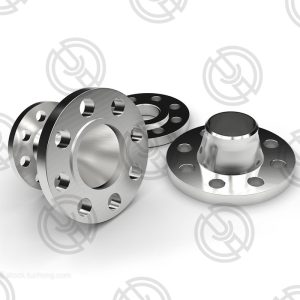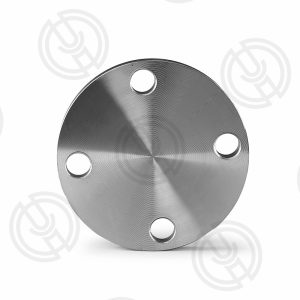ASTM A182 F60 flange, a widely used material in various industries, is renowned for its excellent mechanical properties and corrosion resistance. This article aims to provide an in-depth understanding of its key features, including tensile strength, yield strength, and ferrite content.

Tensile Strength
Tensile strength is a crucial parameter that determines the maximum load a material can withstand before breaking. ASTM A182 F60 flange boasts a high tensile strength of approximately 750 MPa (109 ksi). This remarkable property allows it to resist deformation and failure under severe mechanical stress, making it suitable for critical applications in industries such as oil and gas, chemical, and power generation.
The high tensile strength of F60 flange is attributed to its unique chemical composition and heat treatment process. The material is primarily composed of chromium, nickel, and molybdenum, which form stable and strong metallic bonds. The heat treatment process, including solution annealing and precipitation hardening, further refines the microstructure and enhances the material’s strength.
Yield Strength
Yield strength is another essential mechanical property that defines the maximum stress a material can endure without permanent deformation. ASTM A182 F60 flange has a yield strength of around 550 MPa (79 ksi), which is relatively high compared to other materials in its category. This property ensures that the flange can maintain its structural integrity even under high-pressure and high-temperature environments.
The yield strength of F60 flange is primarily influenced by its alloying elements and processing techniques. The presence of alloying elements like nickel and molybdenum contributes to the material’s solid solution strengthening, thereby increasing its yield strength. Additionally, the controlled rolling and cooling processes during manufacturing help achieve a fine-grained microstructure, further enhancing the yield strength.

Ferrite Content
Ferrite content plays a vital role in determining the corrosion resistance and mechanical properties of ASTM A182 F60 flange. This material typically contains a ferrite content of 3-8%, which is carefully controlled to balance its mechanical properties and corrosion resistance.
The ferrite content in F60 flange affects its resistance to intergranular corrosion, a common issue in stainless steel materials. By maintaining an appropriate ferrite content, the flange can resist the formation of chromium-rich carbides, which can lead to intergranular corrosion. Moreover, the ferrite phase improves the material’s toughness and weldability, making it more versatile in various industrial applications.

In conclusion, ASTM A182 F60 flange stands out for its excellent mechanical properties, including high tensile strength, good yield strength, and controlled ferrite content. These characteristics make it an ideal choice for demanding environments where reliability, safety, and corrosion resistance are of utmost importance. Understanding these properties can help engineers and designers make informed decisions when selecting materials for their projects.
